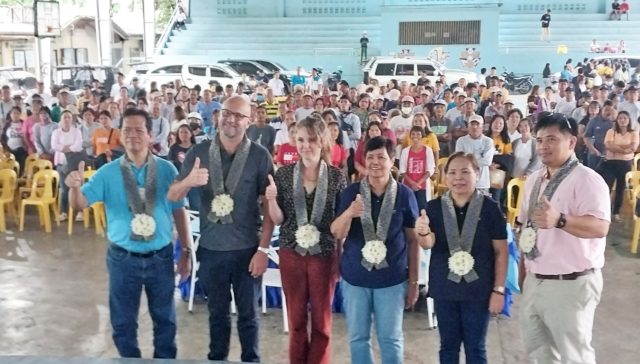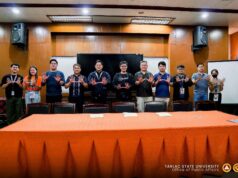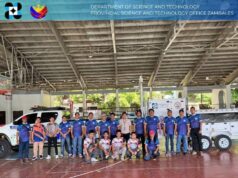SCIENCE CITY OF MUÑOZ — The drive for an alternate wetting and drying (AWD) in irrigation system received a big push after farmers belonging to 13 irrigators’ associations (IAs) entered into an agreement with a Canadian firm for its extensive implementation in ceremonies here Thursday.
The IAs, whose lands are situated within the Division V of the National Irrigation Administration-Upper Pampanga River Integrated Irrigation System (NIA-UPRIIS) signed a Carbon Rights Agreement with Ostrom Climate headed by its president and chief executive officer Phil Cull.
Under the AWD technology, irrigation supply in the rice field will be “a bit controlled” by allowing the field to dry for around five days or until PVC pipes planted on the ground show the plants’ roots already need watering, officials said.
“Ang traditional na pagpapatubig ng mga magsasaka ay di ba nilulunod, tuloy-tuloy ang tubig. Yung ibang magsasaka ay gumagastos ng P10,000 mahigit sa isang planting season. Ngayon sa alternate wetting and drying nababawasan yun ng 30 to 40 percent,” explained Edmund Leo Rico, country lead of Ostrom Climate.
This also entails decreased requirements of insecticide, and other inputs because AWD, Rico said, generates carbon credits due to reduction of methane gasses.
Under the agreement, Ostrom will provide members with technical assistance and support on AWD through farmer field schools as well as training on water, nutrient, pest and harvest management.
It will also be responsible in trading carbon credits generated from the program and “share revenues” to participating farmers through their respective IAs under the benefit sharing agreement.
Engr. Rosalinda Bote, department manager of NIA-UPRIIS, who graced the signing ceremonies, said the AWD will expand irrigation services during tight season.
“Ito ‘yung isa sa ipinapa-implement ng ating top management, ni administrator Eddie Guillen para ma-mitigate ang problema sa El Niño,” Bote said, noting the AWD has long been introduced by the agency but was not embraced by most farmers.
“Alam naman natin ang effect ng climate change ngayon at ang mga dam natin ay bumababa na, ang watersheds natin ay kailangan na ulit i-rehab, so ito ‘yung one factor na talaga kailangan na hindi dapat flooded ang kanilang mga saka,” Bote added.
Also present during the activity were UPRIIS Division V manager Engr. Rogelio Macatula, management and engineering division manager Engr. Vivencia dela Cruz, and Ostrom officials.
The program forms part of Climate Smart Rice Project in the Upper Pampanga River Integrated Irrigation Systems.





